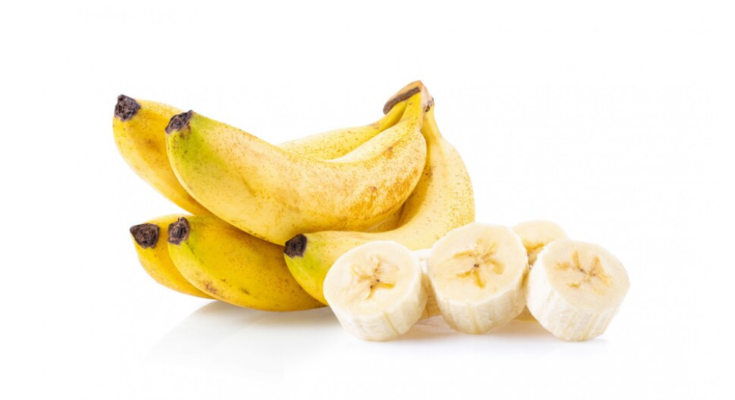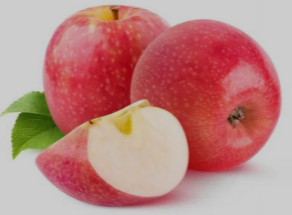Bananas is One of the most commonly eaten fruits in the world, bananas are almost always a hit with children and adults alike. They’re convenient, plentiful, and are a tasty, sweet treat that is totally satisfying and full of health benefits. Adult and children both love them as a snack food as well – and with good reason. Bananas grow in many parts of the warmer, wetter tropical regions of the world. They are drooping clusters and drooping broad-sheet perennials that fruit in clusters and are grown in over 135 different countries amounts to them being one of the major fruits in world trade, and are an important part of the development of many countries. The most popular varieties of the banana in western countries are the yellow desert bananas which, because they have a sweeter taste, are simply called “banana”. Plantains are a species of banana that are always cooked before eating and are usually made into chips. They are one of the major staple foods that are grown and relied on throughout the tropical regions of the world.
Nutritional Value of Bananas
Bananas are more than just a palatable, on-the-go snack. They are an excellent source of nutrients, which contribute to health. A medium-sized banana, weighing 118 grams, will give you:
Calories: 105
Carbohydrates: 27 grams
Sugars: 14 grams
Fiber: 3.1 grams
Protein: 1.3 grams
Fat: 0.3 grams
Bananas especially have gained popularity amongst the rich sources of potassium, which is important for heart and muscle function. One medium banana contains about 422 mg of potassium, representing almost 9% of the recommended dietary intake. They are also rich in a good number of other vitamins and minerals, including vitamin C, vitamin B6, and magnesium.
Bananas have health benefits.
“Heart Health and Blood Pressure Lot. The wondrous health benefits of bananas come from the extreme levels of potassium in them. Calcium prevents blood pressure as sodium makes the body work with it. A better potassium intake lowers blood pressure by reducing risks of heart disease and stroke. Available evidence suggests that individuals who consume sufficient amounts of potassium show much lower incidences of hypertension and cardiovascular disorders.
Digestive Health Bananas contain about 3 grams of dietary fiber in a medium banana. One of the most well-known sources of fiber, bananas contain pectin, which plays a critical role in regulating digestion while preventing constipation by inducing regular bowel movements. Bananas are also famous for their abilities to help in soothing digestive tract issues, making them often a medicine for upset stomach and acid reflux.
Eating somewhat green bananas: Resistant starch is present and may act as a prebiotic to support beneficial gut bacteria. All of these things play a critical role in maintaining a harmonious gut microbiome, which always equals good health: digestive and absorptive processes and immunity.
Bananas will thus provide an invigorating energy blast because of their rich carbohydrate content, and they will be a popular snack for athletes and active persons. The fructose, glucose, and sucrose provide an energy jolt within minutes after eating and are balanced by fiber to maintain steady blood sugar levels without peaks or valleys.
Some people also eat bananas after exercising because they help replenish glycogen stores in muscles that may become depleted during vigorous exercise. Potassium in bananas will also prevent cramping and soreness in the muscles; this makes bananas an ideal recovery food.
Bananas contain tryptophan, with the human body converting it into serotonin, which is a neurotransmitter and a pleasure hormone. Bananas thus bolster one mood and alleviate symptoms of anxiety, depression, and stress. Renowned for tryptophan, bananas contain good amounts of vitamin B6; the latter serves as a precursor of neurotransmitters like serotonin and dopamine.
Potassium contributes to brain health as it helps in the normal functioning of nerves. Several studies have linked sufficient potassium intake to a reduced risk of cognitive decline with advancing age.
Bananas are vastly high in carbohydrates; however, they may be eaten healthily while managing weight. The fiber content of bananas promotes satiety and reduces total caloric intake. A banana can be eaten as a mid-day snack or eat a banana just a little before lunch or dinner, thus controlling cravings to the maximum. Bananas are also relatively low in calories and fat.
Different Varieties of Bananas
The worldwide consumption of bananas is dominated by Cavendish; however, there are hundreds of other varieties of banana that differ in flavor, texture, and uses, such as:
Plantains: Larger, starchier cousins of other bananas, plantains are usually cooked and form a staple food for many tropical nations. Most often, they are obtained as fried, baked, boiled, or served as side dishes or added to stews.
Red Bananas: With purple-reddish skin and the sweetest and softest of their kind, they are a variety of bananas exclusive to the eastern part of the world and contain many good elements, including beta-carotene and vitamin C.
Baby Bananas: Also called “Lady Finger bananas,” they are smaller, sweeter varieties that can be eaten as a snack or in desserts.
Blue Java (Ice Cream-Bananas): With a lovely blue skin and a creamy texture, these bananas have a flavor and consistency resembling vanilla ice cream.
Bananas in Cooking and Cuisine
Bananas are arguably the most versatile fruit available, being used for both sweet and savory purposes. They may be eaten without any accompaniments after ripening, in smoothies or mixed with breakfast cereals, yogurt, or various baked goods such as banana bread and muffins. Other traditional dishes make good use for overripe bananas as well-like banana cakes, banana pudding, and others, thanks to their sweetish bite.
Conclusion The concluding remarks are that bananas are more than just delicious snacks; they are called “superfoods,” plentiful in nutrition, and bestow certain advantages to the human body, from cardiovascular help to digestive aid, mood elevation, and energy enhancement. Bananas are one of the most consumed fruits in the world and will therefore contribute considerably to the economy and sustenance of human life. They are a versatile, wholesome, and inexpensive food, eaten raw or added to dishes or desserts. Therefore, they earn a place in a balanced diet.




